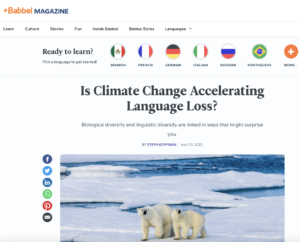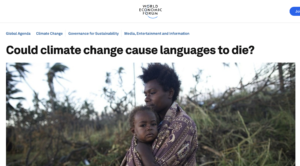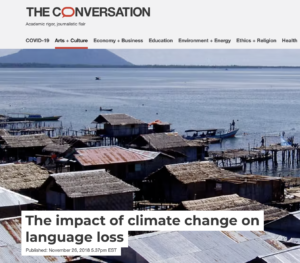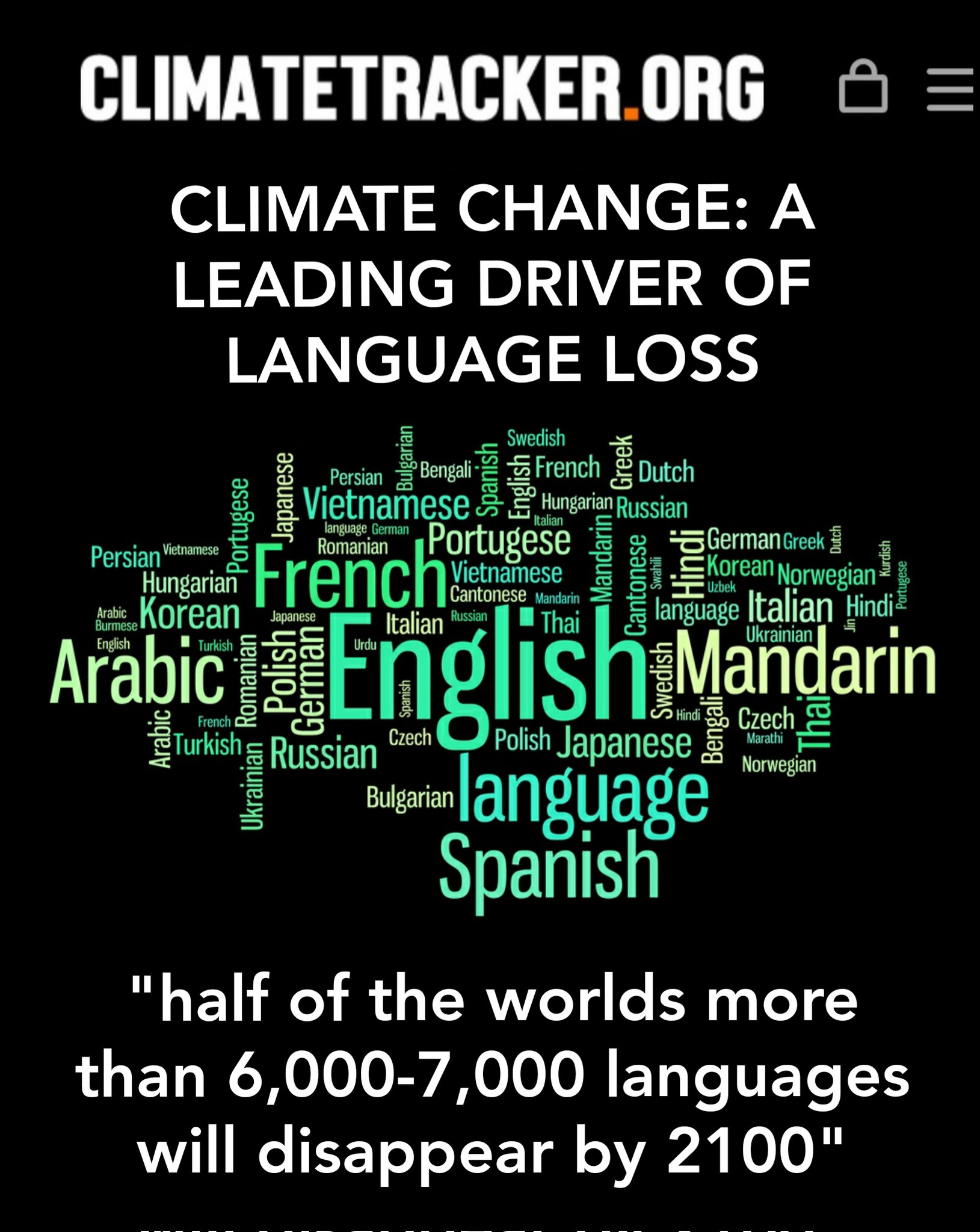https://www.babbel.com/en/magazine/climate-change-language-death
Is Climate Change Accelerating Language Loss?
Excerpt: The Impact Of Climate Change On Language Death
There are approximately 7,000 languages currently spoken in the world today, but as many as half of them are expected to go extinct by the end of this century. Currently, half of the world’s languages have fewer than 10,000 speakers each. When you crunch all the numbers, only about 0.1 percent of the world’s population is currently what’s keeping half of the world’s languages alive.
Of course, it’s impossible to attribute this to any one single cause. Genocide, policy, persecution and economic pressures all play a role in our increasingly globalized world. If speaking your mother tongue doesn’t make financial sense for the community because every viable job opportunity requires you to speak the more populous national language, it’s going to be that much harder to secure institutional support at school and in the media to ensure regional languages are passed down to younger generations.
However, climate change is also endangering the survival of many of the world’s most at-risk linguistic populations. As these communities get displaced due to rising sea levels and climatic changes that disrupt their agricultural and fishing industries, it becomes inevitably more difficult for small languages to remain viable as its speakers scatter around the globe and are forced to assimilate to local cultures.
And even if certain communities manage to stay in place, there’s still a sense of “you can’t go home again” when your local environment is becoming unrecognizable to you.
…
It’s not hard to see how climate change is directly accelerating the process of language death around the world. But is it possible that it works both ways? Does the extinction of languages also, in turn, speed up environmental decay?
This is a claim that might be a bit more difficult to prove, but it’s worth considering. Many indigenous languages are imbued with an intimate (and often unwritten) knowledge of the natural ecosystem they’re a part of — the plants, animals, and all the ways humans have learned to coexist within that matrix over many years.
#
https://www.weforum.org/agenda/2015/12/could-climate-change-cause-languages-to-die/
World Economic Forum: Could climate change cause languages to die?
Excerpt: An increase in climate-change related natural disasters may affect linguistic diversity. A good example is Vanuatu, an island state in the Pacific, with quite a dramatic recent rise in sea levels. … Researchers had just discovered the Dusner language, which had only a handful of remaining speakers, when flooding in 2010 devastated the Papua region of Indonesia, where the Dusner village is located. Luckily, some of the speakers had survived, and the language could be documented.
https://theconversation.com/the-impact-of-climate-change-on-language-loss-105475
The impact of climate change on language loss
One stressor that may be the tipping point for some communities is climate change. Many small linguistic communities are located on islands and coastlines vulnerable to hurricanes and a rise in sea levels. Other communities are settled on lands where increases in temperature and fluctuations in precipitation can threaten traditional farming and fishing practices.
These changes will force communities to relocate, creating climate change refugees. The resultant dispersal of people will lead to the splintering of linguistic communities and increased contact with other languages. These changes will place additional pressures on languages that are already struggling to survive.
#
https://twitter.com/DawnTJ90/status/1516849049248223233







